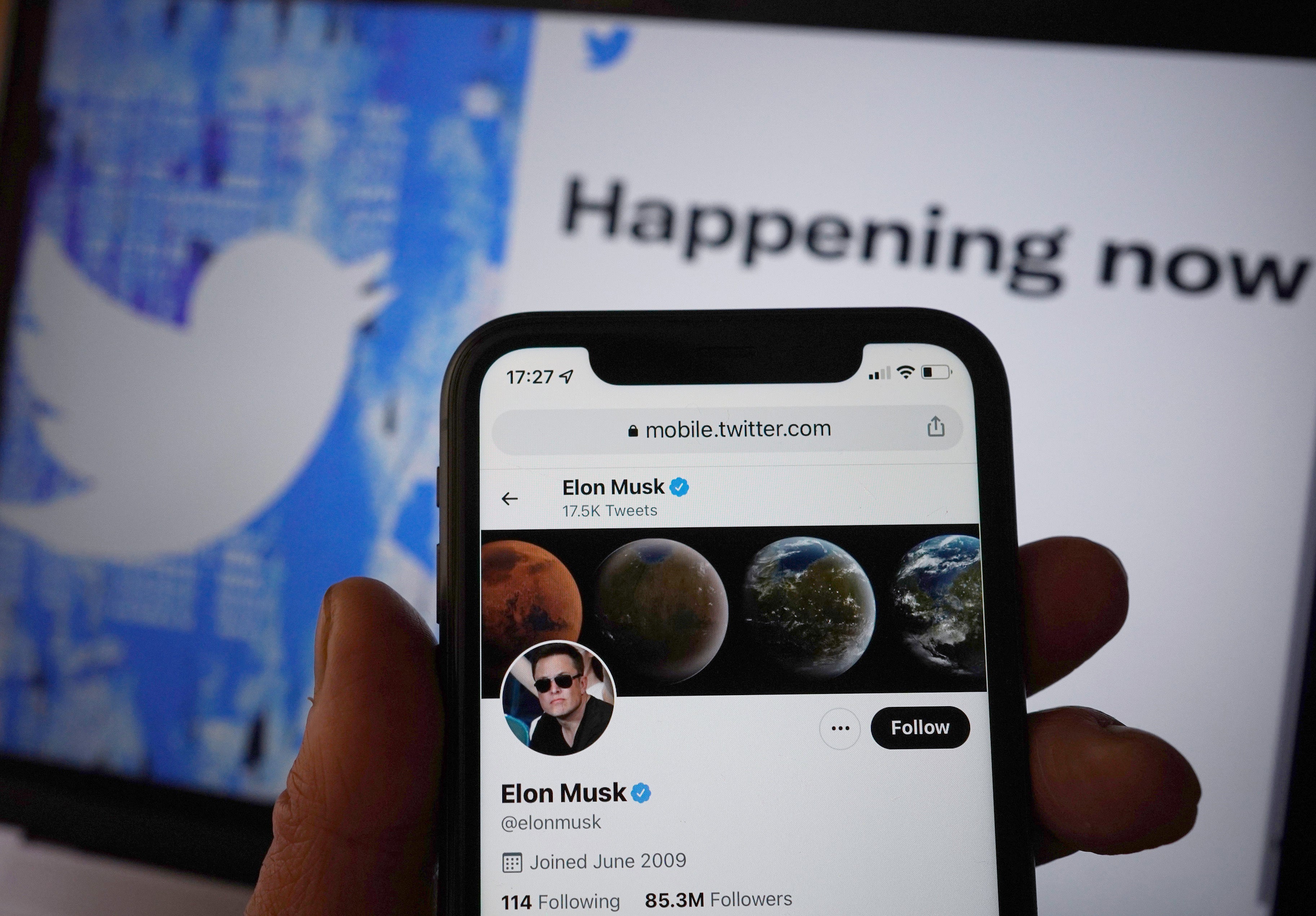Musk description of free speech criticised as Twitter takeover fallout continues
The billionaire has hit back at those raising concerns over his planned takeover of the social media platform.

Elon Musk’s message that free speech on Twitter should mean allowing any content that is legal has been dismissed as too simplistic as the backlash to his takeover of the social media platform continues.
After concerns were raised in some quarters over the billionaire’s £34.5 billion deal to buy Twitter because of Mr Musk’s stance as a “free speech absolutist”, the Tesla boss took to the platform to explain his position on the issue.
He criticised the “extreme” reaction to his proposed takeover before going on to say that he believes free speech to mean “that which matches the law”.
“I am against censorship that goes beyond the law,” he said.
“If people want less free speech, they will ask government to pass laws to that effect.”
“Therefore, going beyond the law is contrary to the will of the people.”
But this approach has been questioned, including by former Twitter staff.
Lewis Wiltshire, the platform’s former head of sport, said it is “hard to imagine a bigger misnomer than ‘free speech'”, adding that it is a mistake to think of it as “one, neat ideology” and people should be “very wary” of anyone who claims to have a simple solution for the issue.
“In reality, productising ‘free speech’ at a global scale is the most complex issue in digital,” he said.
“Most of us would instinctively agree that ‘free speech’ sounds good. But we would also agree that people shouldn’t be allowed to say stuff that incites hate, puts others in danger, or is very damagingly untrue about another person. Before we’ve even started there are caveats.
“People will say yes, but there are laws for that. We’ll have a free speech platform that simply adheres to the law. Sure, but for a global platform, the laws of which country/countries? All of them? Including the ones which have laws many of us would see as deeply regressive?”
Mr Wiltshire also pointed to certain words being reclaimed by specific communities which, used online, would not be considered hate speech by most, but if someone outside that community uses those words, in some countries, “it’s rightly considered a hate crime”.
“Suffice to say “free speech” isn’t one simple ideology which applies equally across all global markets at scale,” he said.
“As always, be very wary of anyone who has a seemingly simple solution for a deeply complex problem.”
Mr Musk’s stance could also face problems should the UK enact the proposed Online Safety Bill, which, as well as punishing social media sites for failing to protect users from illegal content, is also set to include a clause for still-to-be-defined “legal but harmful” content – that which is legal to post, but could cause harm to those who encounter it.
Firms that breach these proposed rules could face large fines or access to their site being blocked.
Thousands of Twitter users appear to have already abandoned the platform in the wake of the Musk announcement, with the social media giant confirming that substantial reductions in follower counts spotted by some were organic account deactivation – dropping by tens of thousands for several high-profile accounts.
At the same time, a number of accounts linked to people on the political right have seen their follower numbers rise significantly.
Mr Musk’s personal use of the platform has also been further criticised after he publicly questioned policy decisions made by the site and its legal, policy and trust head, Vijaya Gadde.
Shortly afterwards, several commentators noted that her account had been flooded with hateful and abusive comments.
It came just hours after the chairman of the Joint Committee on the draft Online Safety Bill urged Mr Musk to “clean up” the site.
Tory MP Damian Collins, a prominent figure in scrutinising the tech sector, said if the billionaire wants to make Twitter the platform of free speech and a “digital town square”, he needs to remove the “co-ordinated armies of bot accounts spreading disinformation and division”.